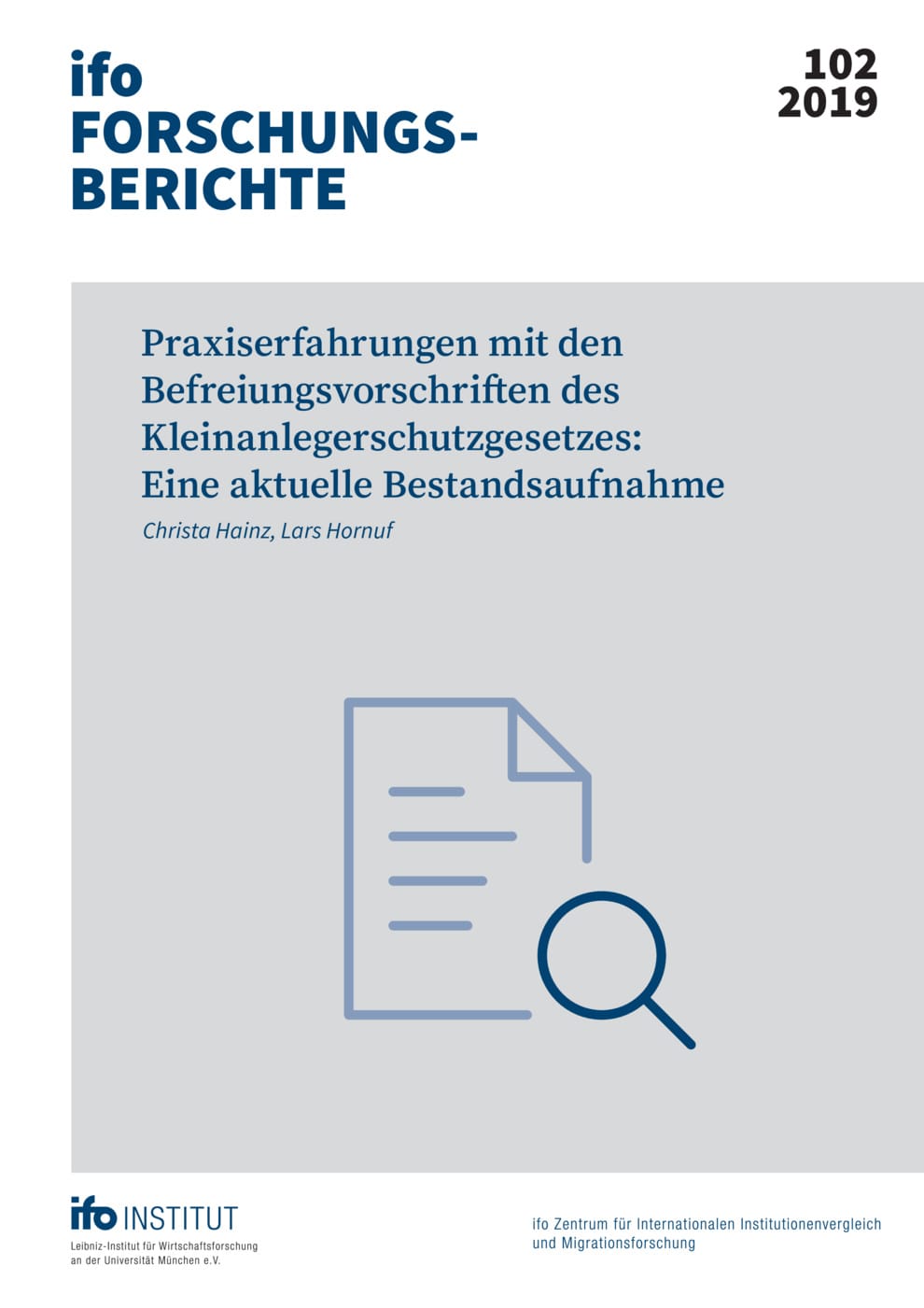The German Small Investor Protection Act from 2015: Practical Experiences with the Exemptions
ifo Institut, München, 2019
ifo Forschungsberichte / 102

The Small Investor Protection Act of 2015 (Kleinanlegerschutzgesetz, short: KASG) is intended to provide greater transparency for investors on the so-called "grey capital market" through stronger regulation. However, the law also contains exceptions. These exempt firms, which finance themselves via crowd-investing platforms, as well as social, charitable and religious projects, from the prospectus requirement when financed via so-called investments. In this report, the effects of these exemptions are analyzed using a comprehensive crowd-investing database and surveys of social and charitable organizations.
On average, the crowd-investing market grew at an annual rate of 197% between 2011 and 2017 and has a cumulative volume of 364 million euros by now (as of 1 April 2018). The main driver of growth was the expansion of real estate financing.
The study shows that the type of investments used for crowd investing have developed from silent partnerships to profit-participating loans and, above all, subordinated loans. However, the use of securities and prospectuses is still low. There was an increase in issues between 1 and 2.5 million euros in the total market volume. In addition, more issuers are approaching the 2.5-million-euro threshold. The number of investors who invested exactly 1,000 euros on crowd-investing portals also rose slightly after the KASG came into effect. Moreover, since then the overall number of investors investing more than 10,000 euros decreased. These developments can be interpreted as an indication of the effectiveness of the thresholds in sales price and in investments.
In the area of social and charitable projects, the legal exemptions are rarely applied, as other exemptions provide easier exemptions from the prospectus requirement.